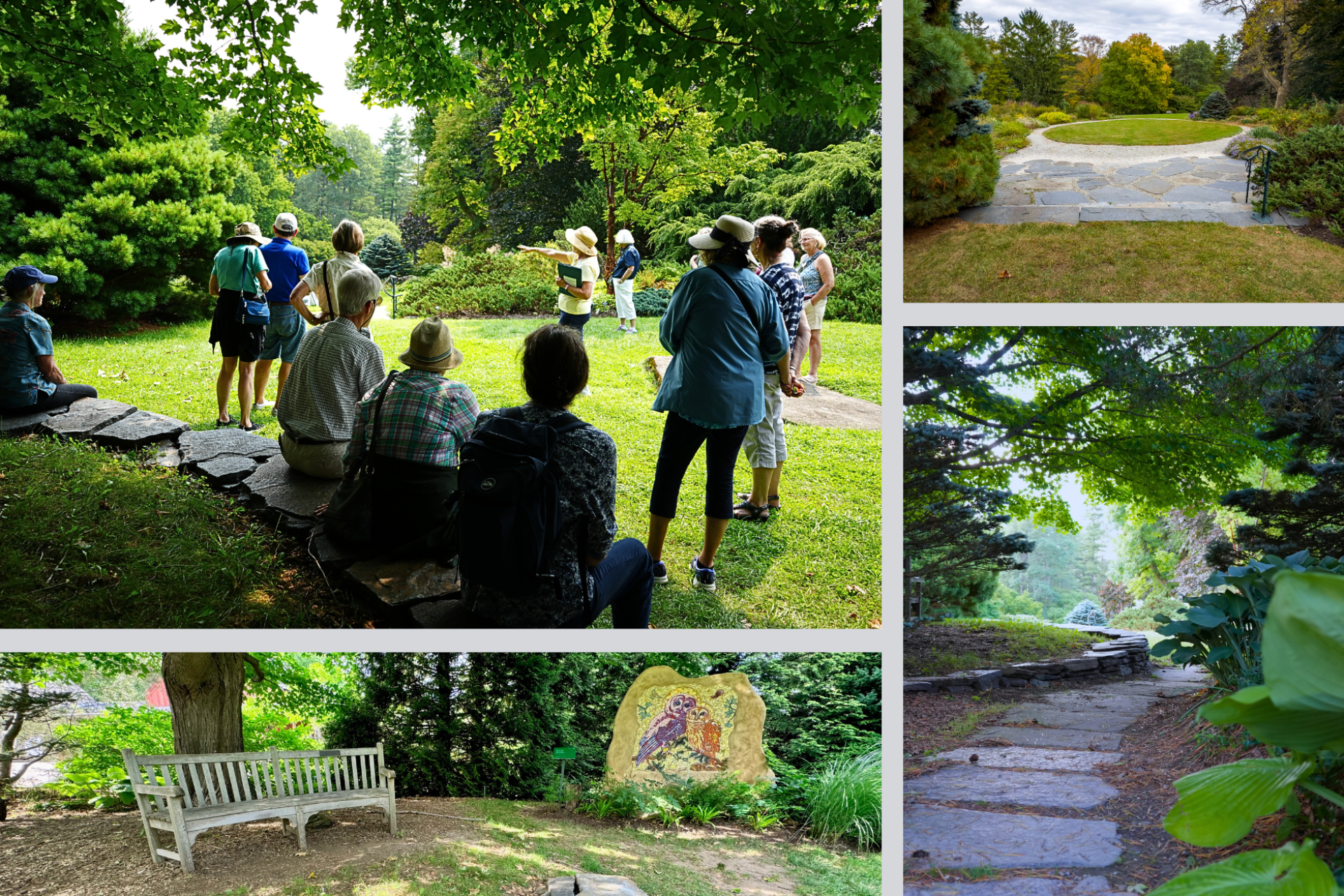You are here
Vista Garden
Vista Garden
Designed for all four seasons, this garden provides year-round interest. Spring bulbs, fothergilla, crabapples, and dogwoods flower in spring. Summersweet and oakleaf hydrangea bloom in summer. Autumn brings brilliant fall foliage. And evergreens and brightly colored bark provide interest all season long and enliven the winter landscape.
Evergreen or Deciduous?
Deciduous plants have leaves that drop every fall. Other plants retain their foliage for multiple ears so we call them evergreen. Depending whether a plant is deciduous or evergreen, it often has different properties and needs. In Northern climates, we often think of needle-bearing conifers as being evergreen and broad-leafed trees and shrubs as deciduous, but this is not always true. Some conifers, such as the dawn redwood and larches (both of which are hardy here), drop their needles each fall. Some broadleaf shrubs such as hollies, boxwood and certain rhododendron hold their leaves all winter long. Deciduous wood plants often need rich soil and plenty of water. They help to create those conditions for themselves by dropping their foliage, which then decays and adds nutrients back into the soil.
Most evergreen woodies retain their foliage for two or three years, dropping leaves or needles sporadically. This slow process does less to enrich the soil. But since they don't need much extra energy for a springtime rebirth, these species can often manage in less fertile soil and with less water.
Did You Know?
Soil pH level is a measurement of whether soil is more acidic or alkaline. The scale runs from 1 to 14. A pH below 7 is considered acidic, above 7 is alkaline, and 7 is neutral. Most common garden plants grow best in a pH range of 6.4 to 7.5. Here at the Garden, soil pH can run as high as 8.2, but years of enriching our gardens with compost has brought most of the soil in cultivated areas closer to neutral. Some acid-loving plants, like rhododendron and blueberries, prefer an acidic pH ranging from 4.5 to 6, and do not do well in the alkaline soil of this area of the Berkshires. Royal azalea (Rhododendron schlippenbachii) is a noteworthy exception.
Among the Collection:
Help Our Garden Grow!
Your donation helps us to educate and inspire visitors of all ages on the art and science of gardening and the preservation of our environment.
All donations are 100 percent tax deductible.

































